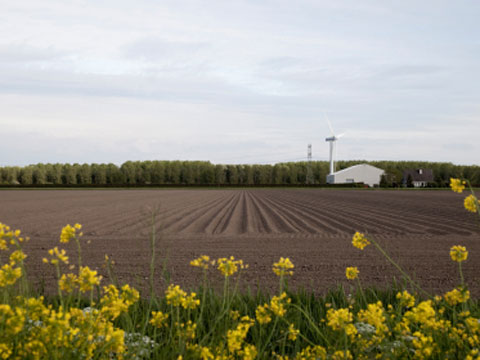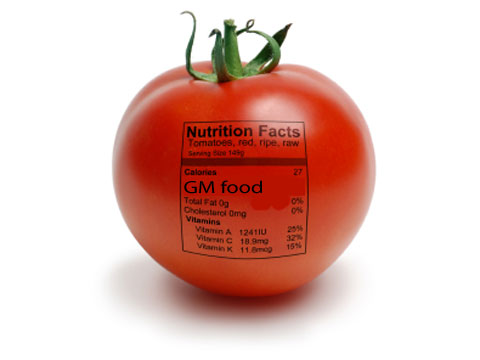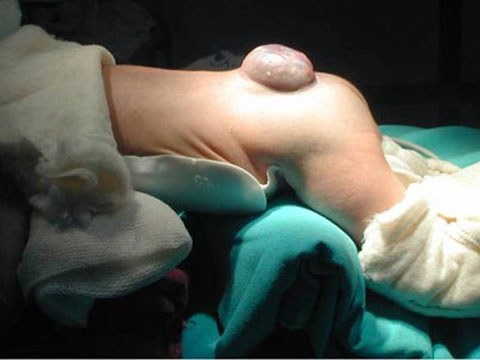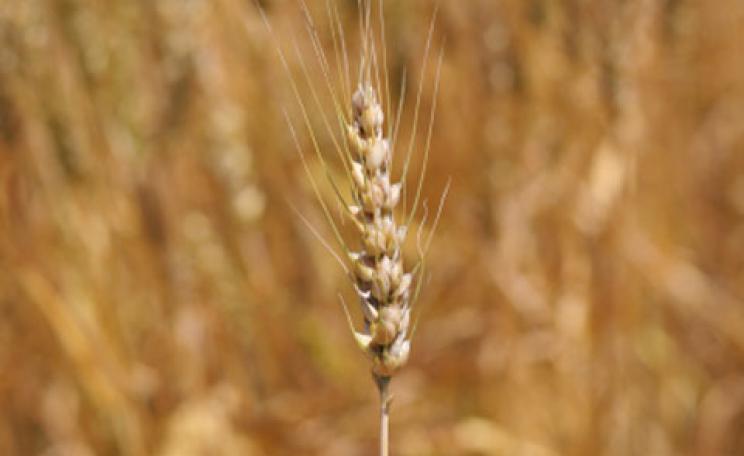Around 80 per cent of Europe's animal protein requirements are imported, mostly as soya
The EU is on the brink of allowing a raft of unapproved GM crops into the food chain as it prepares to lift restrictions on animal feed containing trace elements of GM crops.
At present the EU has a zero-tolerance approach to the presence of any genetically modified crop that has not been approved for growing in Europe. But this means unintended mixing of approved and unapproved varieties can lead to whole shipments being banned from entering Europe.
Both the animal feed industry and biotech industry have been lobbying individual countries to vote in favour of a proposal to allow imports of animal feed to contain up to 0.1 per cent of non-approved GMOs. They claim the current restrictions are costing the European Union 4 billion Euros and leading to a 'crisis' of supply that will lead to higher meat prices for consumers.
'At a time when livestock farmers are struggling with high feed costs due to record world price levels for cereals, we risk losing market access to the South American spring soybean crop with dramatic consequences for the supply of protein-rich feedstuffs,' argues Patrick Vanden Avenne, president of the European Compound Feed Manufacturers' Federation (FEFAC), the main lobbyist organisation on the issue.
'It's time for the EU to catch up with the reality of global expansion of GM crop acreage to ensure feed and food security of EU livestock farmers and consumers'.
The EU is heavily reliant on imports of protein, particularly soya from South America, to meet the animal feed requirements of its livestock although this could be reduced if it encouraged farmers to switch to home-grown alternative protein crops like oilseed rape meal, lupin, sunflower, linseed, beans and peas.
Backdoor approval of GM
However, campaigners say the issue is being exaggerated by industry. They say EU figures show no shipment of animal feed has been rejected by the EU in the past year because of contamination by untested GM crops. 'It's a scarmongering debate from the feed industry,' said Friends of the Earth GM campaigner Mute Schimpf.
Observers fear the issue is being used as an 'easier way' to get GM crops into Europe, with consumers less aware of what animals are being fed. The food industry lobby group CIAA and the biotech lobbyists Europabio admitted as much themselves, saying food crops as well as crops for animals should be allowed to contain trace elements of unapproved GMOs.
'The proposed measure is necessary, but it is only a stop gap,' said EuropaBio’s Director of Agricultural Biotechnology, Carel du Marchie Sarvaas. 'The fundamental problem is that Europe’s assessment process for GM crops, food and feed has been slow, while the rest of the world has moved ahead. Until more GM products are assessed, European livestock farmers will continue to face disruptions to their supply of feed.'
Anti-corruption group, Corporate Europe Observatory, has published its own investigation into heavy lobbying by industry groups. 'I think it's safe to say that to allow presence of illegal GM in food and feed is one of the key targets of the industry to break down the resistance in the EU against GMOs. It would basically give the message [that] all GMOs are safe,' said campaigner Nina Holland.
European member states are due to vote on the issue next week.
| READ MORE... | |
 |
NEWS Revealed: how seed market is controlled by Monsanto, Syngenta, Bayer, Dow & DuPont Graphic illustrates how just five biotech giants have increased their control of the global seed market, promoting monoculture farming and making it harder for farmers to find alternative sources of seeds |
 |
NEWS Biotech industry plays down discovery of GM crops surviving in the wild GM seed manufacturers claim that genetically-modified crops are not likely to survive in wild, but US researchers have found GM plants surviving for at least two generations |
 |
NEWS EU food safety chief forced to quit GM lobby role Questions raised over why European Food Safety Authority (EFSA) chair Diana Banati failed to make clear her connections to International Life Science Institute (ILSI), which advises biotech giants like Monsanto, Bayer and BASF |
 |
NEWS UK could cut Amazon soya imports with home-grown peas and beans A solution to the livestock sector's reliance on soya animal feed, which is driving deforestation in Argentina and Brazil, could be found by incentivising home-grown alternatives |
 |
COMMENT Revealed: the glyphosate research the GM soy lobby doesn't want you to read Andres Carrasco's research linking a controversial herbicide with birth defects highlighted the potential health dangers posed by GM crop-spraying in Argentina – and led to violence and intimidation for those behind the study |








